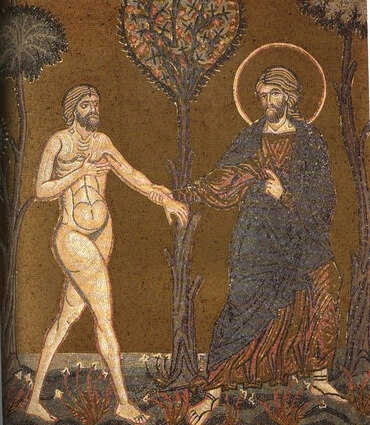1
Po kurio laiko nusikalto Egipto karaliui jo vyno pilstytojas ir duonkepys.
2
Faraonas supyko ant abiejų savo valdininkų: ant vyno pilstytojų viršininko ir duonkepių viršininko.
3
Jis įsakė juos uždaryti sargybos viršininko kalėjime, kur kalėjo Juozapas.
4
Sargybos viršininkas pavedė Juozapui juos prižiūrėti ir jiems patarnauti. Jie ten sėdėjo ilgesnį laiką.
5
Egipto karaliaus vyno pilstytojas ir duonkepys tą pačią naktį sapnavo sapną, ir kiekvieno sapnas turėjo savo reikšmę.
6
Juozapas, įėjęs pas juos rytą, pastebėjo juos esant prislėgtus.
7
Jis paklausė jų: “Kodėl šiandien jūsų veidai tokie paniurę?”
8
Jie atsakė: “Sapnavome sapną, bet nėra, kas jį išaiškintų”. Juozapas jiems tarė: “Argi ne iš Dievo ateina išaiškinimas? Papasakokite juos man”.
9
Tuomet vyno pilstytojų viršininkas papasakojo savo sapną Juozapui: “Aš sapnavau, kad pasirodė vynmedis prieš mane.
10
Jis turėjo tris šakeles, išleido pumpurus, išskleidė žiedus ir subrandino vynuoges ant kekių.
11
Faraono taurę laikiau savo rankoje. Paėmiau vynuogių, išspaudžiau jas į Faraono taurę ir padaviau taurę faraonui”.
12
Juozapas jam atsakė: “Štai sapno išaiškinimas: trys šakelės yra trys dienos.
13
Po trijų dienų faraonas sugrąžins tave tarnybon, ir tu padavinėsi faraonui taurę į jo ranką, kaip pirma darydavai, kai buvai jo vyno pilstytojas.
14
Atsimink mane, kai tau bus gerai, ir pasigailėk manęs, paminėk mane faraonui ir padėk man išeiti iš šitų namų.
15
Aš esu pavogtas iš hebrajų krašto ir čia nesu nusikaltimo padaręs, už kurį mane laikytų kalėjime”.
16
Kepėjų viršininkas girdėdamas, kad jis gerai išaiškino, tarė Juozapui: “O aš sapnuodamas mačiau tris pintines ant savo galvos.
17
Viršutinėje pintinėje buvo įvairių keptų valgių faraonui, ir paukščiai lesė iš tos pintinės”.
18
Juozapas atsakė: “Štai sapno išaiškinimas: trys pintinės yra trys dienos.
19
Po trijų dienų faraonas nukirs tavo galvą, tave pakabins ant medžio, ir paukščiai les tavo kūną”.
20
Trečiąją dieną buvo faraono gimtadienis ir jis iškėlė puotą visiems savo tarnams. Jis atsiminė savo vyriausiąjį vyno pilstytoją ir vyriausiąjį duonkepį.
21
Faraonas sugrąžino vyriausiąjį vyno pilstytoją į jo tarnybą, ir jis vėl padavinėjo taurę faraonui.
22
O kepėjų viršininką jis įsakė pakarti, kaip Juozapas buvo jiems išaiškinęs.
23
Tačiau vyno pilstytojų viršininkas neatsiminė Juozapo ir pamiršo jį.







